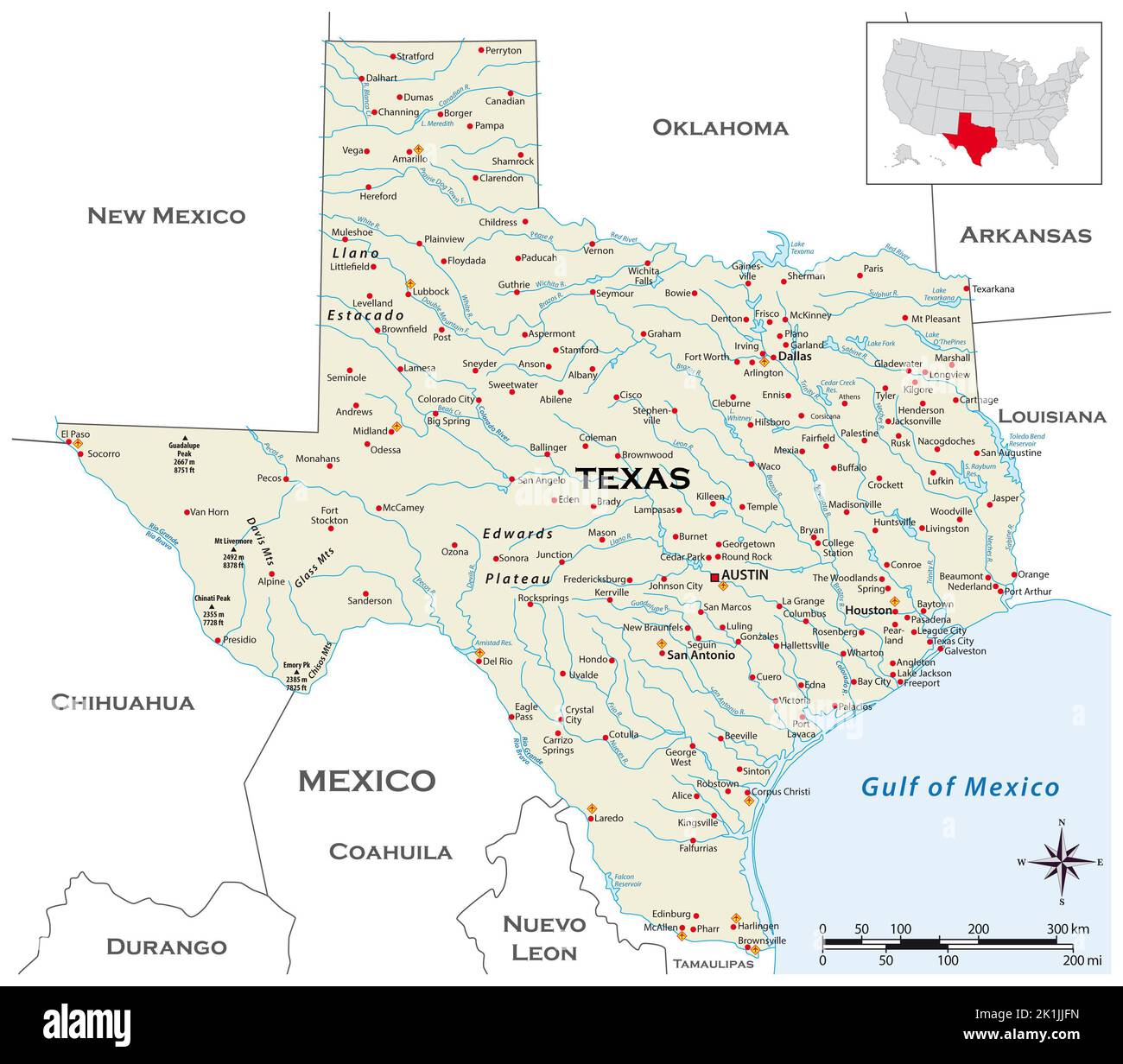Exploring The Debate: The Texas Ban On Vibrators
The state of Texas, a place known for its vast landscapes ranging from arid deserts in the west to lush forests in the east, and its strong sense of independence, often finds itself at the center of discussions about personal freedoms and legal boundaries. It is, after all, the second-largest U.S. state by total area, a place with a rich history, having become the 28th state of the union in 1845. This unique character of Texas, bordered by Oklahoma to the north, Arkansas to the northeast, Louisiana to the east, the Gulf of Mexico to the southeast, and Mexico to the southwest, certainly shapes its laws and the public conversation around them.
A topic that has, in a way, sparked quite a bit of public interest and legal wrangling over the years involves restrictions on certain personal items. It's about how the state approaches laws that touch on private lives. This isn't just a simple matter; it brings up bigger questions about privacy and what individuals can do in their own homes. The discussions often get very animated, and you know, it makes people wonder about the limits of government reach.
So, the idea of a "texas ban on vibrators" has been a point of curiosity and, for some, a real concern. It highlights a fascinating aspect of Texas law and how it interacts with modern society. We'll help you find some information about this specific issue and what it might mean for folks living in or visiting the Lone Star State. It's a rather interesting piece of the legal landscape, wouldn't you say?
- Chris Martin And Dakota Johnson
- Prince William News
- How Old Was Ralph Macchio In Karate Kid
- Brat Pack Members
- Glen Powell Sr
Table of Contents
- Understanding the Texas Law on Personal Devices
- Historical Context and Legal Challenges
- The Impact on Individuals and Commerce
- Public Discourse and Future Outlook
- Frequently Asked Questions About Texas Laws
Understanding the Texas Law on Personal Devices
When people talk about a "texas ban on vibrators," it's actually a bit more nuanced than a simple, outright prohibition. The laws in question often relate to statutes concerning obscenity or the promotion of certain materials. Texas, a state with a coastline on the Gulf of Mexico to the southeast, has a legal framework that, in some respects, has been interpreted to restrict the sale or distribution of items considered "obscene." This framework is what has historically caused confusion and debate around personal devices.
The core of the matter often boils down to how "obscene devices" are defined within state law. These definitions can be quite broad, and they sometimes include items that many people would consider private. It's not, you know, a specific list of banned items, but rather a set of criteria that, when applied, could potentially encompass things like vibrators. This makes the situation a little complex, and it leaves room for different interpretations by legal professionals and law enforcement.
For example, state statutes might focus on whether an item is designed or marketed primarily for "sexual stimulation" and whether it lacks serious literary, artistic, political, or scientific value. This is, in a way, a legal test that can be applied to many different objects. So, the discussion around a "texas ban on vibrators" really centers on how these general obscenity laws are applied to specific personal items. It's a rather important distinction to keep in mind.
- Taylor Swift Cats
- Schuyler Frances Fox
- Bradley Cooper Gigi Hadid
- Hawk Tuah Girl Fired
- Brad Pitt Girlfriend 2024
People living in Texas, or those thinking of moving there, might wonder how these laws affect their everyday lives. It's not always clear cut, and that's why there's so much discussion. The official website of the state of Texas, which helps you find government services, information, and resources, does provide access to state laws, but interpreting them for specific situations can be quite a task. It really shows how legal language can be a bit tricky to understand fully.
Historical Context and Legal Challenges
The history of laws related to items like vibrators in Texas is, you know, quite long and, in some ways, full of challenges. For a good while, statutes that prohibited the sale or promotion of "obscene devices" were on the books. These laws were, in a way, a reflection of societal views from an earlier time, and they sometimes led to arrests or legal action against businesses that sold these items. It was a different era, after all.
However, over time, these laws faced significant legal scrutiny. People argued that such restrictions infringed upon personal liberty and privacy rights. The legal system, you know, often evolves as society changes its perspectives. There have been court cases that challenged the constitutionality of these "obscenity" statutes when applied to personal items. These challenges often claimed that the laws were too vague or that they interfered with an individual's right to privacy in their own home. It's a pretty fundamental argument about freedom, isn't it?
One of the most notable legal battles that, in some respects, shaped the current situation involved a case where the state's obscenity law was specifically challenged regarding vibrators. The arguments centered on whether these devices could truly be classified as "obscene" in the same way as, say, pornography, or if they were simply personal health and wellness products. The courts had to consider, in a way, the intent behind the law versus the actual use of the items. This legal process is, you know, how many laws get refined or even overturned over time.
As a result of these legal challenges, the landscape around the "texas ban on vibrators" has, in a way, shifted. While some of the underlying obscenity statutes might still exist, their application to personal devices has been significantly limited by court rulings. This means that while the letter of the law might seem to imply a ban, the practical enforcement and legal interpretation have, in many cases, made it much less restrictive. It's a rather important distinction for anyone wondering about the current situation.
This ongoing legal dialogue highlights the tension between public morality laws and individual freedoms. Texas, a state in the south central region of the United States, has always had a strong emphasis on personal independence. This cultural aspect, you know, often fuels the debates around such laws. You can learn more about Texas legal history on our site, which helps explain how these kinds of discussions play out in the state's courts and legislature.
The Impact on Individuals and Commerce
The perceived "texas ban on vibrators," even if it's more about legal interpretation than a straightforward prohibition, has had some real effects on both individuals and businesses. For people, it can create confusion and, in a way, a sense of uncertainty about what is allowed. Imagine, you know, wondering if something you use privately could somehow be against the law. That's a pretty unsettling feeling for anyone.
For businesses, especially those selling sexual wellness products, the legal ambiguity has presented challenges. Some retailers might have been hesitant to stock certain items due to fear of legal repercussions, even if the actual risk was low after court rulings. This can limit consumer choice and, in some respects, stifle a market that exists in other states without such historical legal baggage. It's not just about the law itself, but also about how businesses perceive the risk involved. That's a pretty big deal for commerce, you know?
Online sales have also complicated the matter. Even if a physical store in Texas might have been cautious, people can always order items from outside the state. This makes enforcement, in a way, very difficult and, frankly, highlights how outdated some of these laws can seem in the age of the internet. The internet, you know, doesn't really care about state borders when it comes to shipping products. This has, in some respects, made the "ban" more symbolic than truly effective in stopping access to these items.
The discussion around these laws also touches on broader public health conversations. Access to sexual wellness products can be important for individual well-being and relationships. Restricting access, even indirectly, can have unintended consequences for people's health and happiness. It's a rather important point that often gets lost in the legal jargon, you know? The well-being of the people is, in a way, paramount.
For more detailed information on how state laws affect daily life, you can link to this page Texas consumer rights. This might give you a better sense of the broader legal environment in Texas, which is, you know, bordered on the north by Oklahoma, on the northeast by Arkansas, on the east by Louisiana, and to its southwest lies the country of Mexico, making it a state with diverse influences.
Public Discourse and Future Outlook
The conversation around the "texas ban on vibrators" is, in a way, a part of a much larger public discourse about privacy, personal autonomy, and the role of government in individual lives. Many people feel that what adults do in their private lives, as long as it doesn't harm others, should be free from state interference. This viewpoint is, you know, very common in discussions about personal freedoms, and it resonates strongly in a state like Texas, which values independence.
There's a lot of talk, too, about whether these kinds of laws are truly effective or if they simply drive activities underground. If people want something, they will, in some respects, find a way to get it. This often leads to arguments that such laws are outdated and don't reflect modern societal norms. It's a pretty compelling argument, you know, when you think about it.
Looking ahead, it's likely that the legal landscape around these issues will continue to evolve. As society changes and new technologies emerge, laws often need to be re-evaluated. Texas, which is the second largest US state by total area and population, will probably continue to see debates about these kinds of personal liberty issues. The state's unique character, as described in "My text," with its vastness and diverse landscape, from arid deserts to lush forests, contributes to a wide range of viewpoints on these matters.
Activists and legal groups will, in a way, probably continue to push for clearer, more permissive laws that align with broader interpretations of privacy rights. It's a constant back and forth between different viewpoints. The weather, you know, can be unpredictable in Texas, and so too can the legal climate when it comes to these kinds of personal issues. It's a rather interesting dynamic to observe, and it shows how a state's values can shape its legal future.
This ongoing discussion is a vital part of a healthy democracy, allowing citizens to express their views on what government should and should not regulate. It's a pretty important process, actually, that helps shape the future of the state. You can find more information about current legal trends and cases on the State Bar of Texas website, which is a good resource for legal news in the state.
Frequently Asked Questions About Texas Laws
People often have questions about how these laws work in Texas. Here are a few common ones:
Is it illegal to own a vibrator in Texas?
No, it is not illegal to own a vibrator for personal use in Texas. The legal challenges over the years have, in a way, clarified that the state's obscenity laws do not apply to the private possession or use of such devices. So, you know, individuals are generally free to have these items for their own purposes. It's a pretty important distinction, actually, for personal freedom.
Can you buy vibrators in stores in Texas?
Yes, you can buy vibrators in stores in Texas. While there might have been some hesitation from retailers in the past due to legal ambiguities, court rulings have, in some respects, significantly limited the application of obscenity laws to these items. This means that, you know, many stores now sell them without issue. It's a pretty common sight in many retail environments these days.
What are Texas obscenity laws?
Texas obscenity laws are statutes that generally prohibit the creation, distribution, or promotion of materials considered "obscene." These laws typically define obscenity based on whether the material appeals to a prurient interest, depicts sexual conduct in a patently offensive way, and lacks serious literary, artistic, political, or scientific value. The key is, you know, how these broad definitions are applied to specific items or situations. It's a rather complex area of law, actually, and it often leads to a lot of discussion.
- Alabama Barker Nude
- Paris Hilton Husband
- Little House On The Prairie Reboot
- Alan Jackson Health
- Were The Millers 2

Texas infographic Cut Out Stock Images & Pictures - Alamy

People in san antonio texas hi-res stock photography and images - Alamy

Best Cities to Visit in Texas for Food, Fun, and Adventure - Citybit